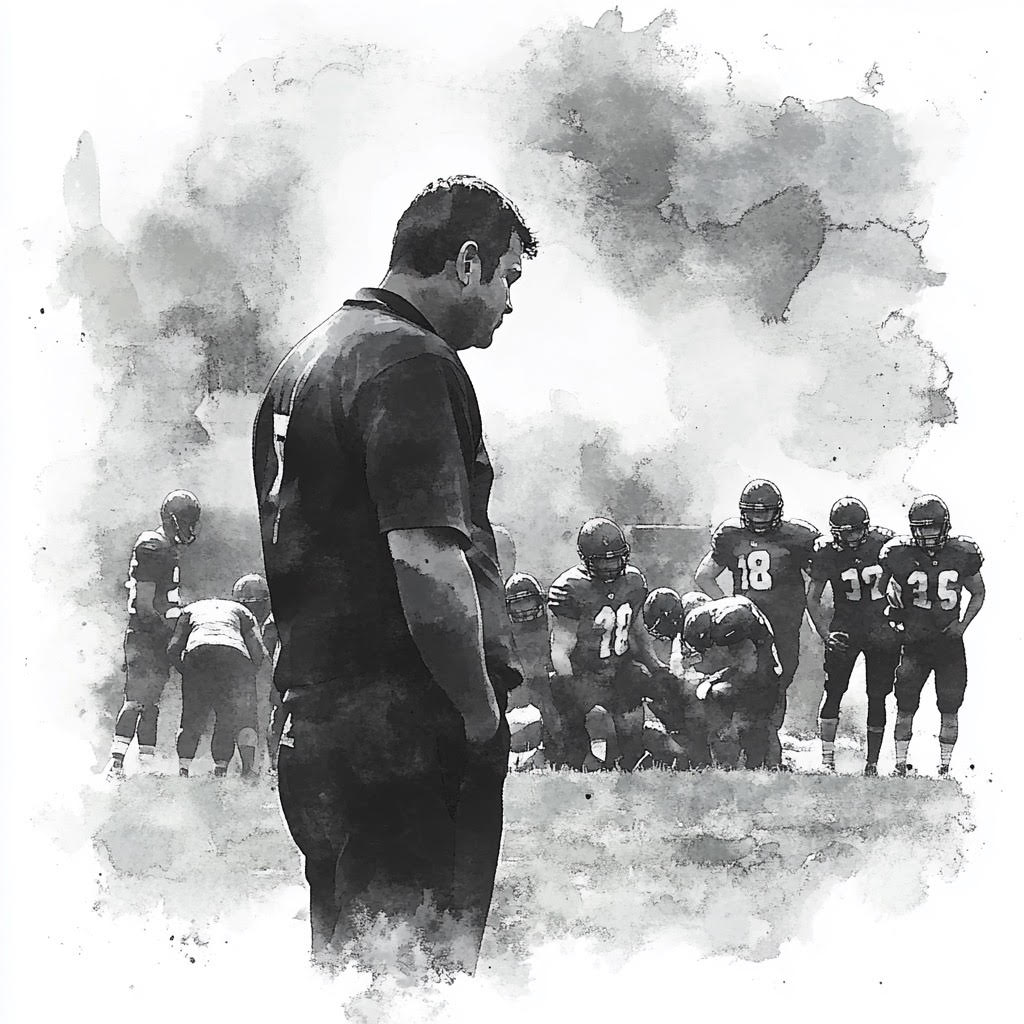The Magnificent Defeat
Why do our past failures live on as such vivid memories?
On Saturday I happened to see an interview with Alabama’s new coach, Kalen DeBoer. I knew that, after 17 years and six national championships, the legendary Alabama coach Nick Saban had retired, but I didn’t know who was unlucky enough to follow him.
But here was 49-year-old Kalen DeBoer, and I stopped to listen.
“What was your win-loss record before you came to Alabama?” the interviewer asked.
“One-hundred-and-something . . . can’t remember exactly—and twelve,” DeBoer answered. “I know it’s twelve.”
“And,” said the interviewer, “which number is the most important to you?”
“Twelve,” said DeBoer. “I remember every one of those losses.” And he went on to recall the worst: a 55-0 semi-final defeat.
I know the elite football culture of win-or-die, but I couldn’t help wondering why this man was fixated on the twelve. Certainly there were electrifying last-second touchdowns, miraculous goal line stands, thrilling games where he won against all odds. But no. What he remembered most were the defeats, the humiliations.
One thing you can count on—nobody else remembers the twelve. We tend to think that the world remembers all our mistakes. They don’t. Psychologists call it the Spotlight Effect: every person is the center of their own little world, and we think everyone is watching our inner drama. But no one really cares because, of course, they are too busy being the center of their own little world. When you spill coffee on your white shirt, you go through the day thinking everyone notices what a klutz you are. But everyone is too busy hiding their own little stains.
Recognizing the Spotlight Effect is a good start. It helps to realize that we’re obsessing about some failure or screw-up, when no one even remembers anymore. But that doesn’t finally address the feelings of guilt or shame that still cling to our hearts. Real freedom comes when we realize that God can only reach us in our moments of defeat, when our program of self-improvement isn’t working anymore and we are uncomfortably vulnerable. No one yet was ever saved by success.
Maybe that’s what Kalen DeBoer knew, deep down. That his awful twelve were what made him vulnerable and humble and human. I hope so.

“You wouldn’t worry so much what people thought of you if you knew how little time they spent thinking about you.” Or something to that effect. It was a line in a sermon preached by David Pearson at the First Congregational church in Rochester, NH, over 30 years ago. I still remember it, and now it is connected to this meditation. Thanks, David!
Love that quote!
So true, Johnna! I’m writing that down in my Quotes journal.
Another wonderful post David! Thank you. I too very much like your quote. It’s very true unless, of course, someone has developed a fixation on another and that person is all they ever think about. Unfortunately with regard to politics this is a condition I’m seeing much more often than I used to.
As I was reading your post two things came to mind. The first is a phenomenon that I have observed where when a person adamantly believes that they are going to do good at something, win at something, then they end up losing, they will often times get stuck in the loss. Conversely, if someone adamantly believes that they are going to not perform well then they end up performing incredibly well, they will get stuck in the win. I can’t explain the mental mechanics of this phenomenon but I have definitely observed it.
The other thing that came to mind was how during the first twenty years of my working in construction as a carpenter I had the unfortunate experience of working for bosses that had absolutely no tolerance for mistakes. In this environment if I made a mistake, which I frequently did (especially in the early days), I would be heavily berated for the error I made. Consequently, whenever I would make a mistake I would instantly introvert and prepare for the scolding and humiliation. When I finally went off on my own and began working for myself, this adverse mental conditioning I had developed regarding the making of a mistake began to slowly diminish. Eventually I was able to turn the tables and actually embrace mistakes as being both lessons and guidance in that they would point to doing something with the project that I never would have considered.
For the past twenty or so years here is what I have to say about mistakes:
A mistake is only a mistake until it becomes a lesson learned at which point it never was a mistake it was always a lesson.
Thanks again David.